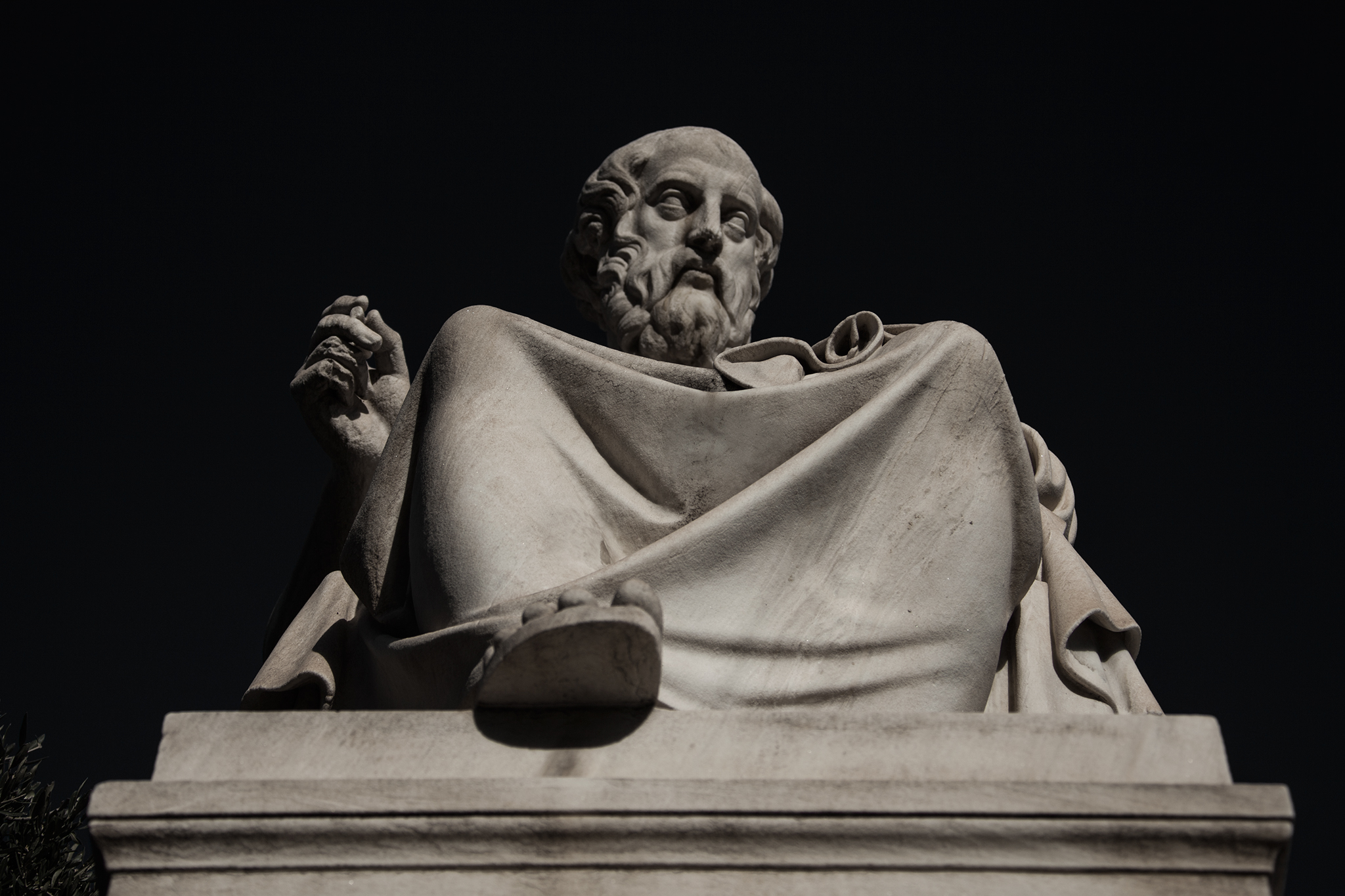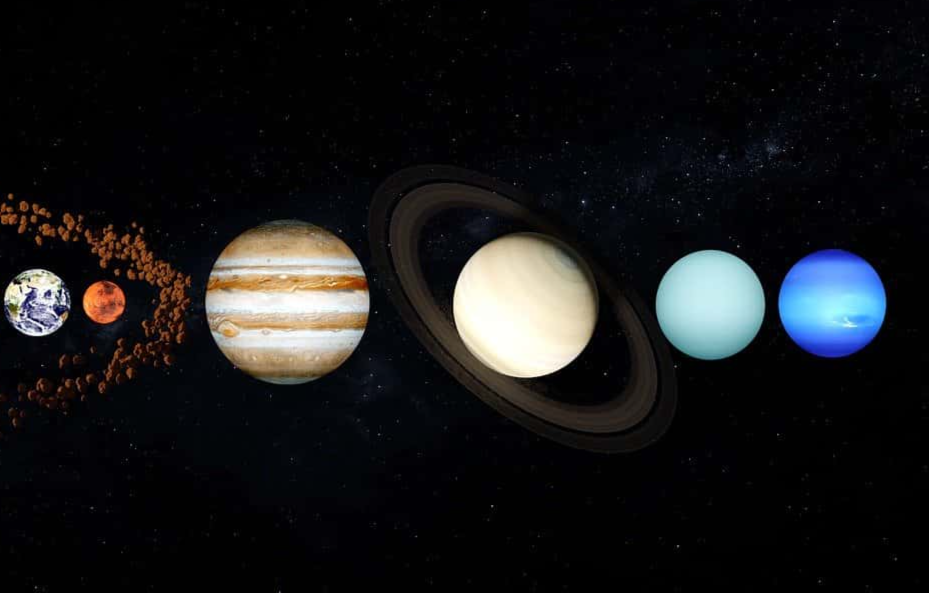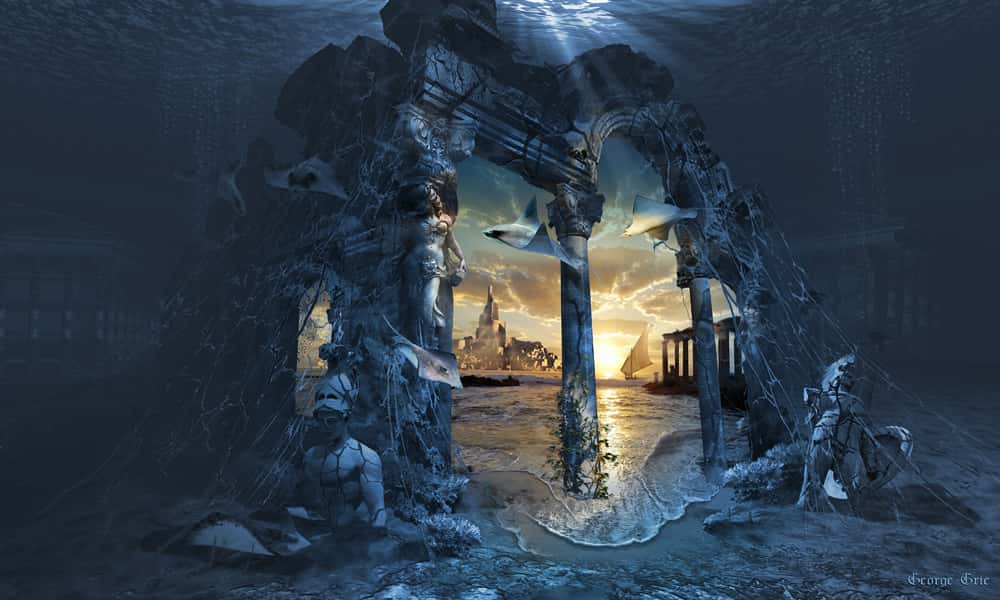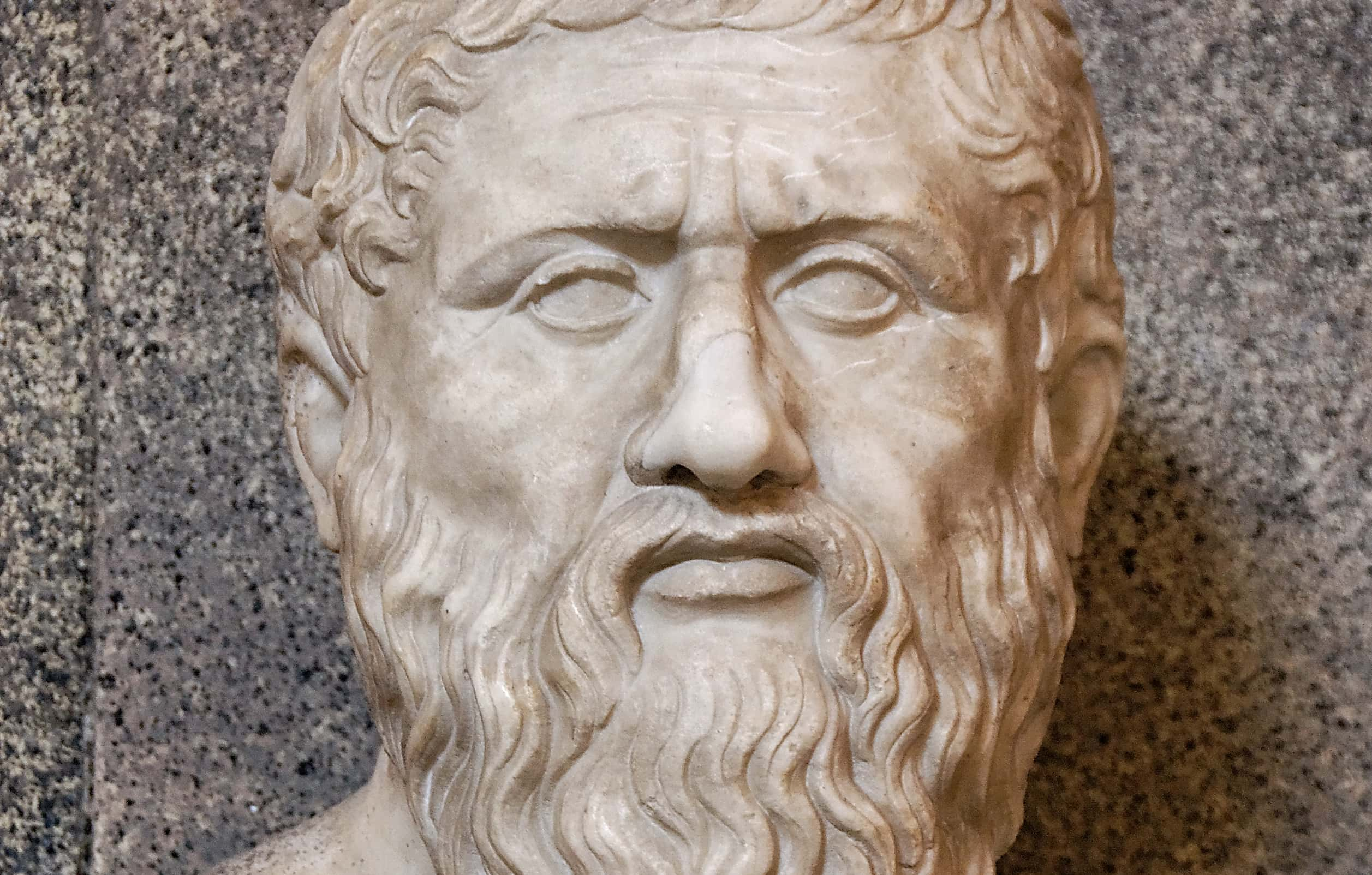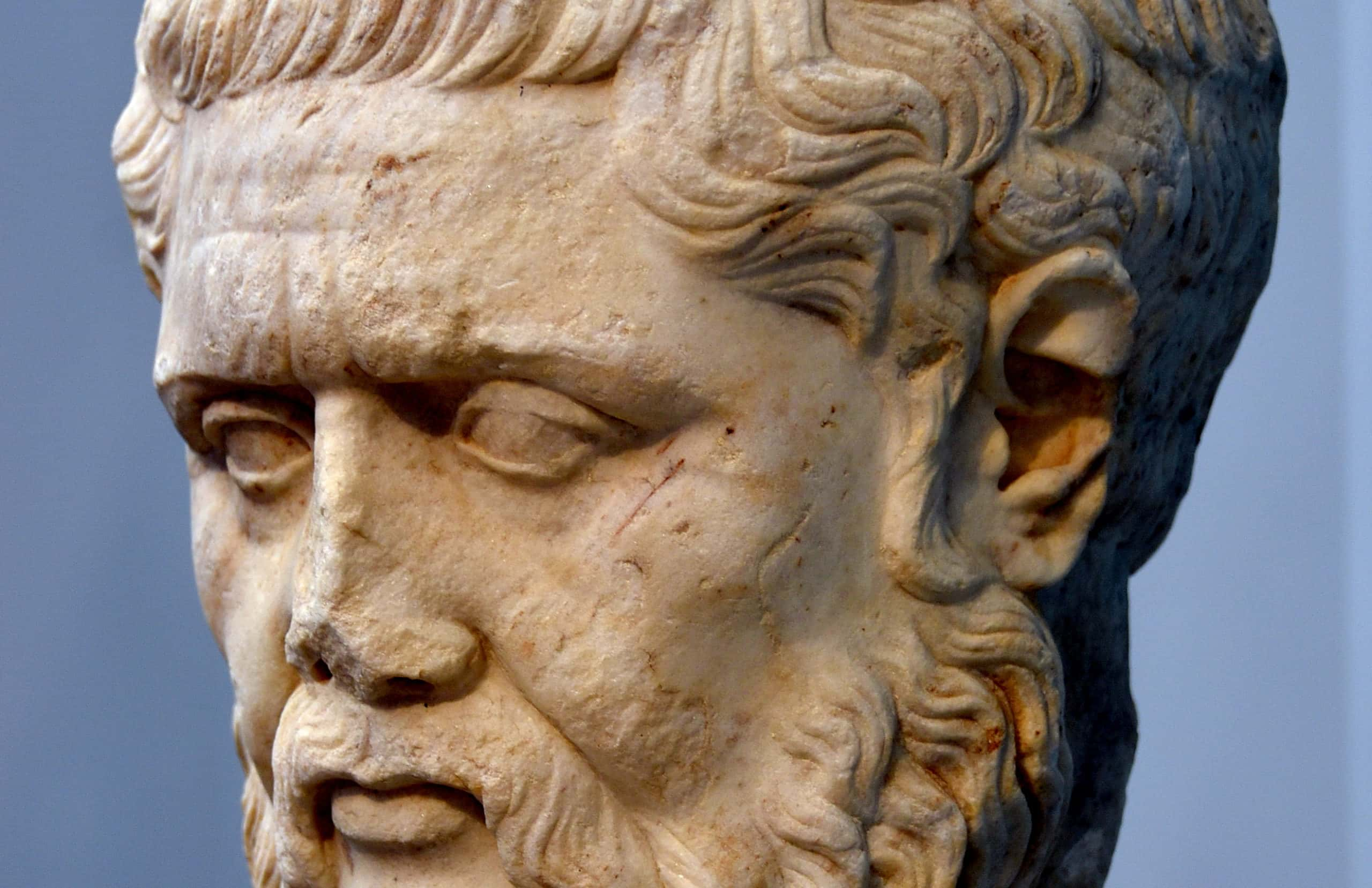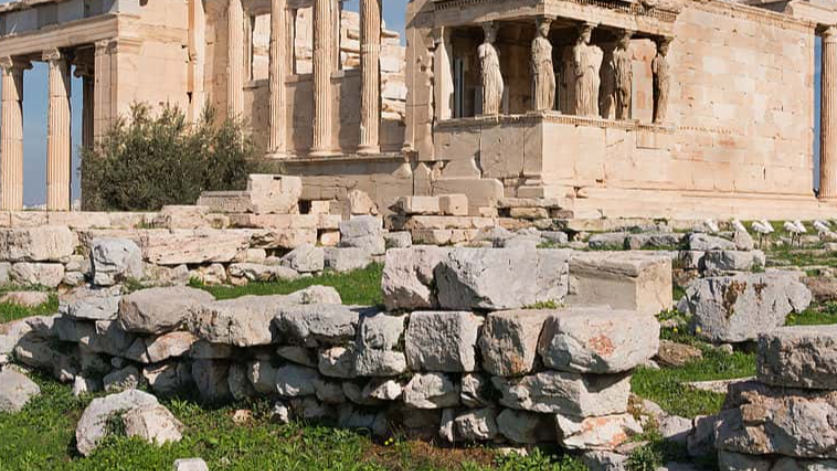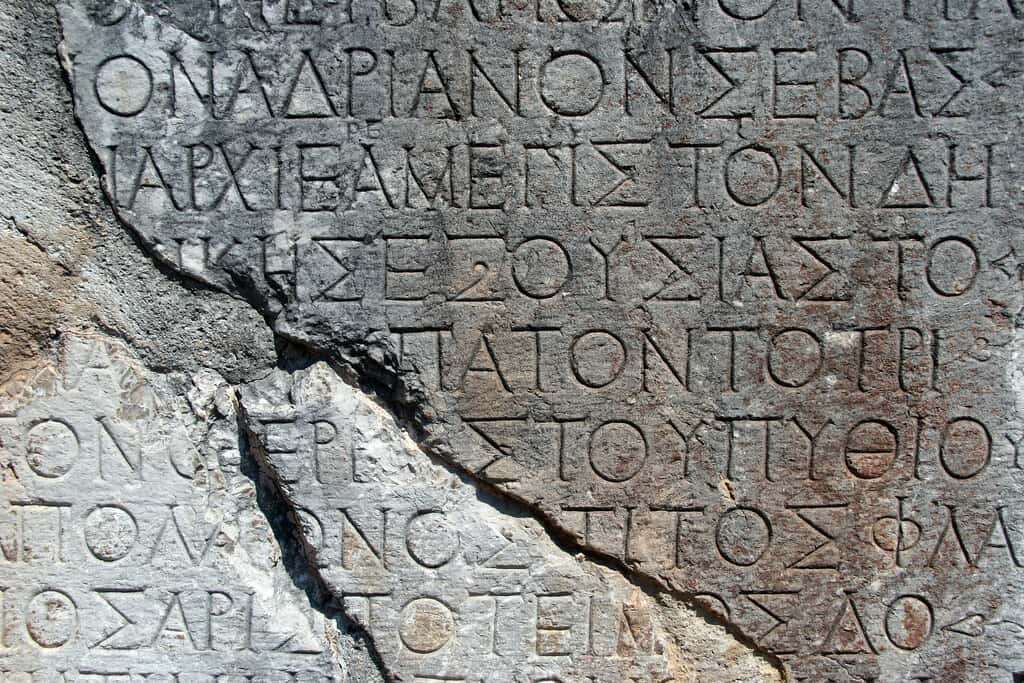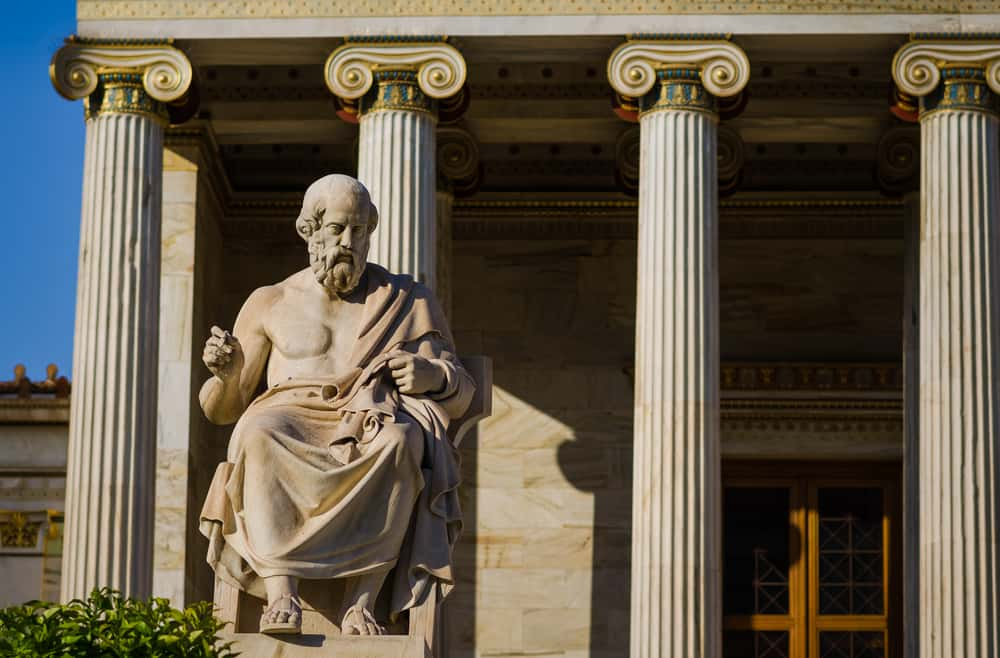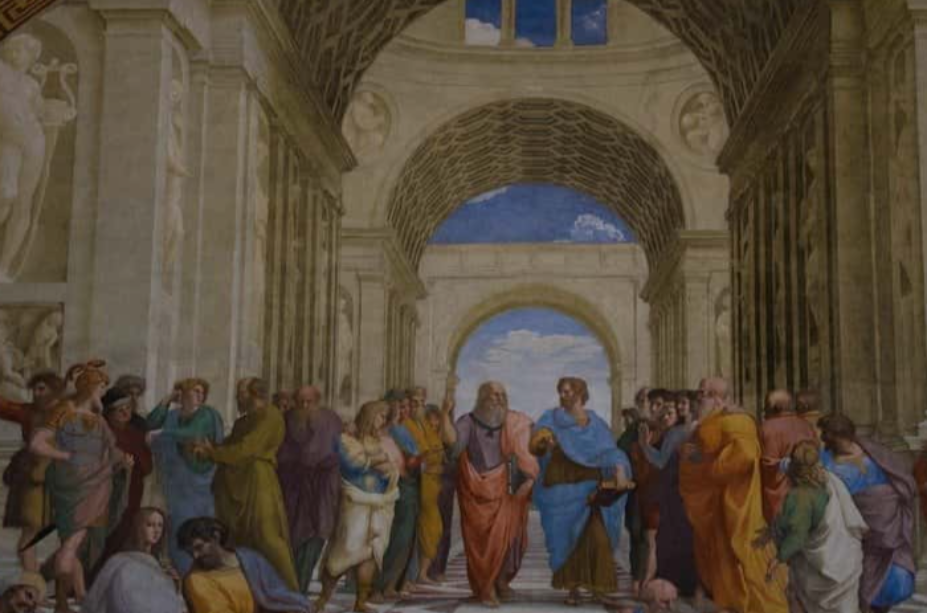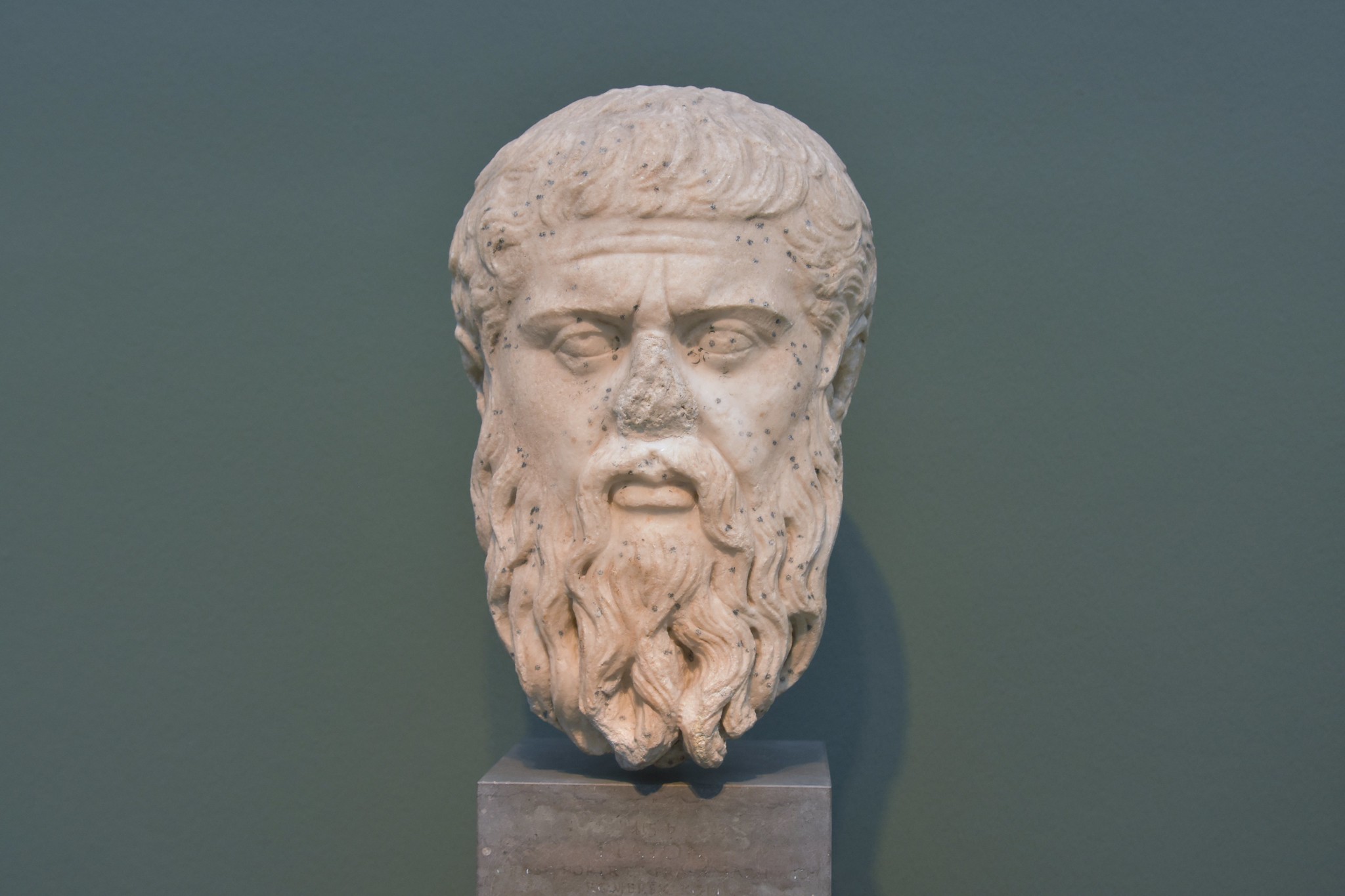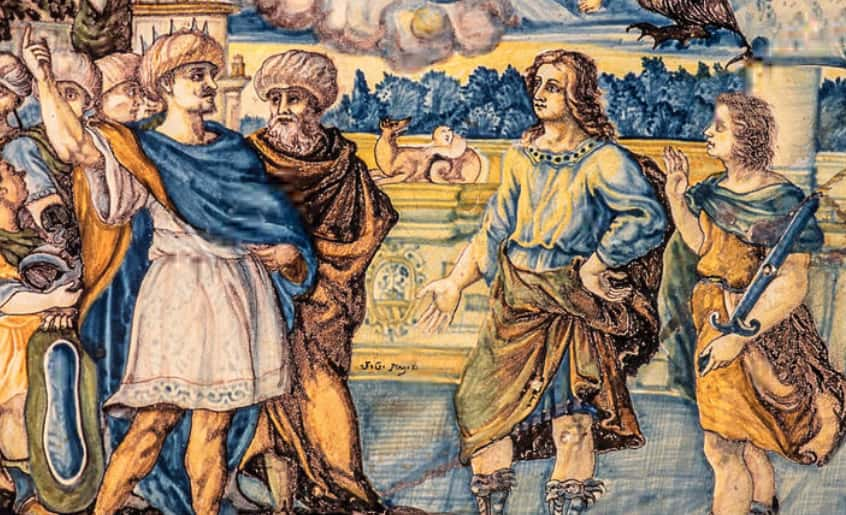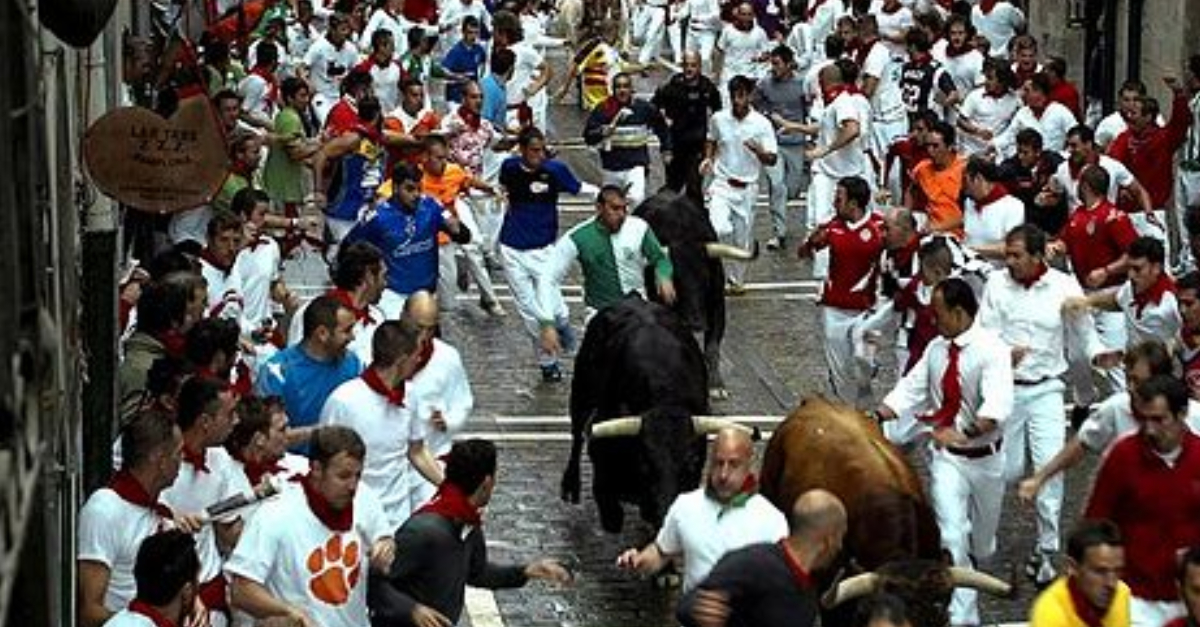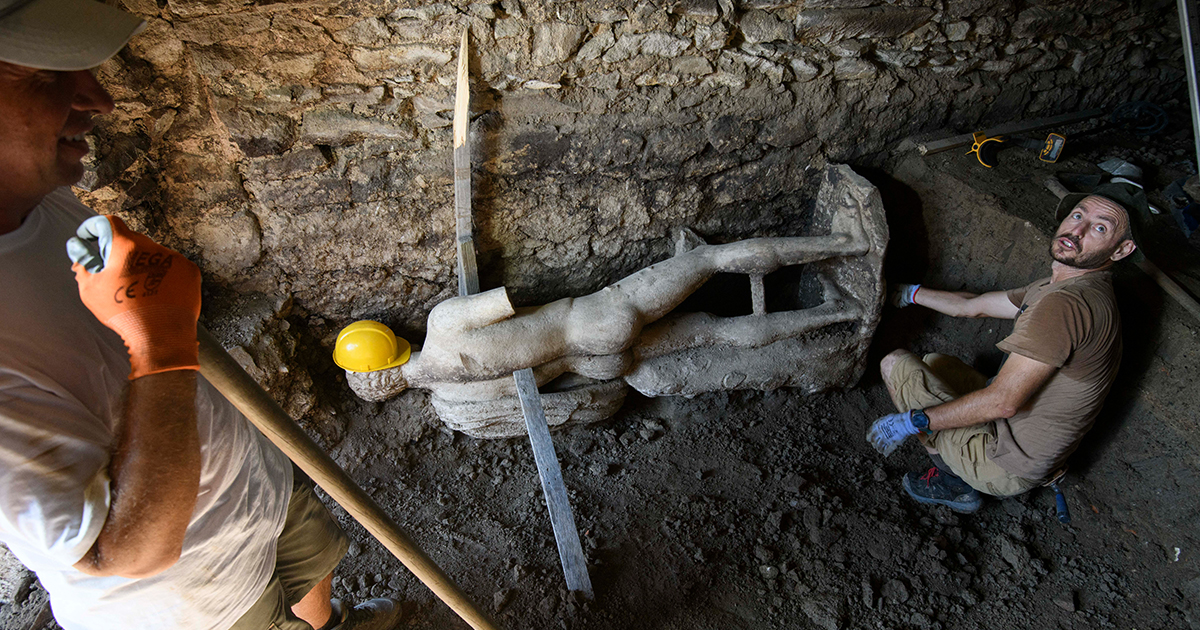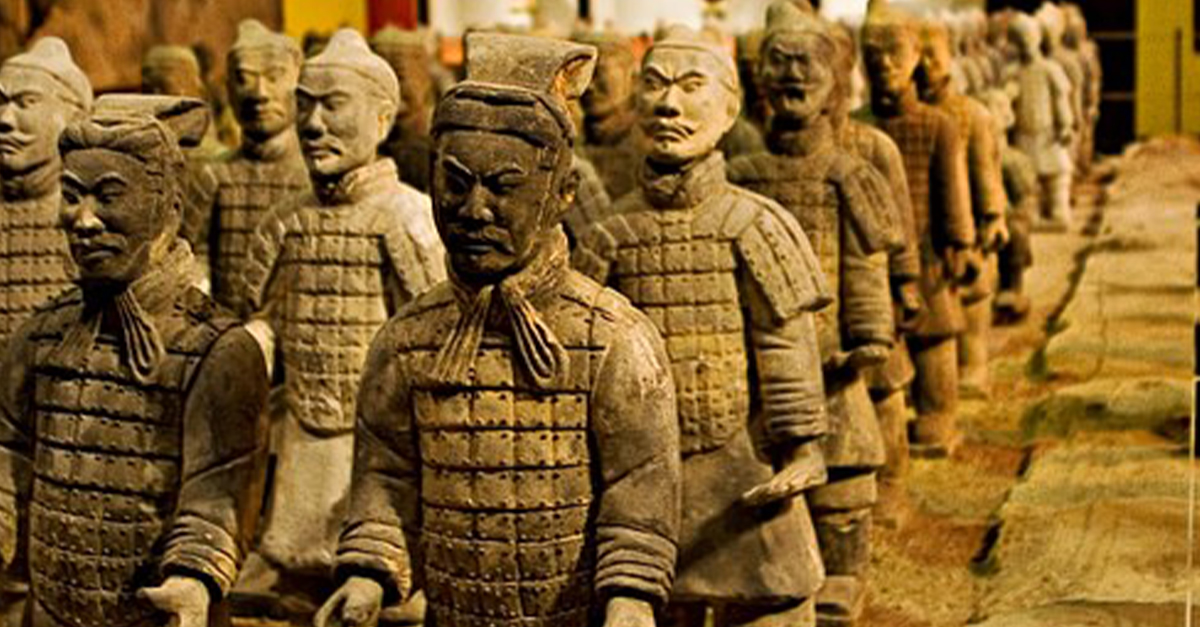“A hero is born among a hundred, a wise man is found among a thousand, but an accomplished one might not be found even among a hundred thousand men".
“Wise men speak because they have something to say; Fools because they have to say something".
When looking back on Plato’s works and influence, there’s no doubt that he was instrumental in creating the disciplines of philosophy, mathematics, even religion and spirituality, as we know them today. Even the foundation of what we know as schools and universities are something he created, way back before these institutions were really common. For a man who lived such an incredible life, and a long one at that, there isn’t a whole lot that we know about him personally, but keep reading to find out just some of the things we do know about this giant of philosophy and his thought-provoking life.
1. A Long, Long Time Ago
Plato lived a really long time ago, which means a lot of what we know about him comes from historians who have tried their best to piece together ancient sources. One thing that’s slightly different, depending on who you ask, is when he was born. Some say 428 BCE, while others would go with either 424 or 423 BCE. He passed roughly around 348 BCE.
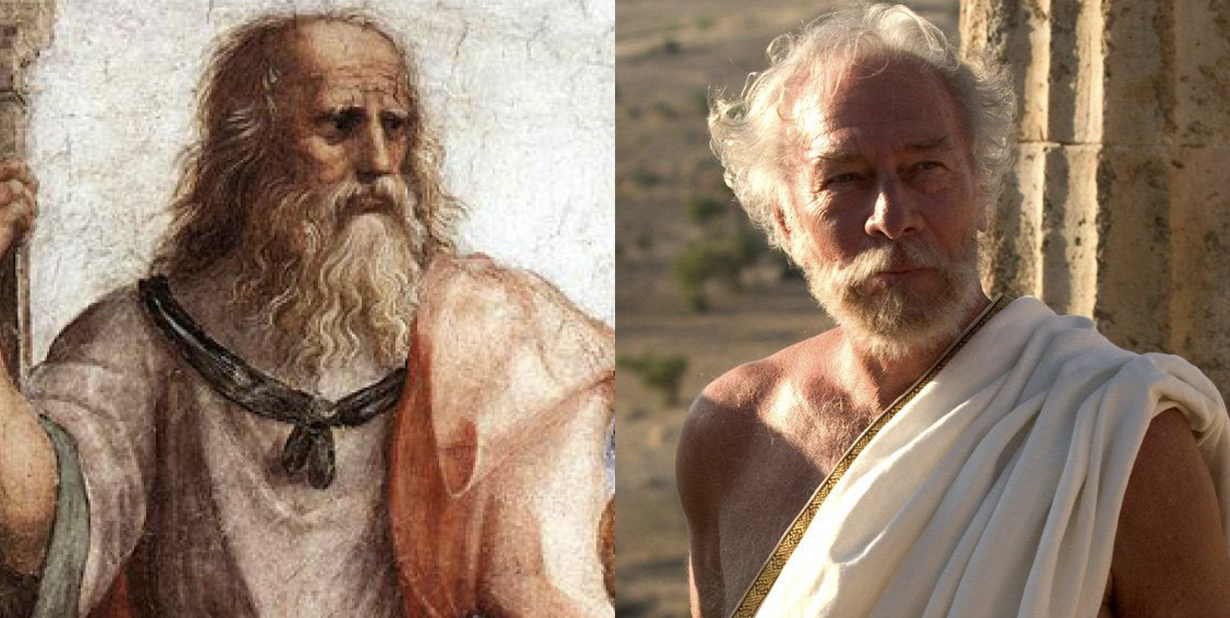
2. The Circle of Teaching
Plato had another really big name in the world of philosophy teach him the ways: Socrates. A young Plato met Socrates, who ended up having a huge influence on his life. Of Socrates, Plato said he was “an absolute unlikeness to any human being that is or ever was". For his part, Plato taught yet another well-known philosopher, Aristotle. Since Plato was born into a well-to-do aristocratic family, he would have had the best education available at the time.
3. A Terrible Loss
Plato, ever the friend, documented Socrates’ trial, which was brought about because of Socrates' political opposition to the more democratic direction Athens was heading toward at the time. Socrates was condemned to end for corrupting the youth of Athens with his ideas, and was forced to drink poison hemlock. Though Plato wasn't present at Socrates' forced execution, he wrote about the ordeal in his Phaedo, which must have been heartbreaking.
4. Top 10 for Sure
There’s so much written about Plato that he’s considered to be the tenth most famous person in the world. As of 1999, there were 2,894 books about him in the Library of Congress alone! Although he’s ranked behind people like Jesus, he actually ranks ahead of his pupil Aristotle.
 Flickr
Flickr
5. The Center of It All
There’s one thing we can definitely forgive Plato for, and that is his belief that the Earth was at the center of the universe. He believed that all the stars, the other planets, the Sun and the Moon all rotated around Earth. Something that he did get right? The Earth was round.
6. Plato’s Lost City Theory
One of the biggest mysteries in the world is that of the Lost City of Atlantis. Plato firmly believed it was a real place, existing some 8,000 years before even his own time! Plato came to believe that Atlantis was near the Strait of Gibraltar and was lost in a single day due to an earthquake, flooding, and rain.
7. A Tragedy in Itself
Plato could have been a dramatist, having written tragedies before meeting Socrates when he was 19. After meeting Socrates he decided to give up that whole life, even reportedly going as far as burning all of his manuscripts. Can you even imagine what the young Plato wrote? My guess is Dashboard Confessional lyrics.
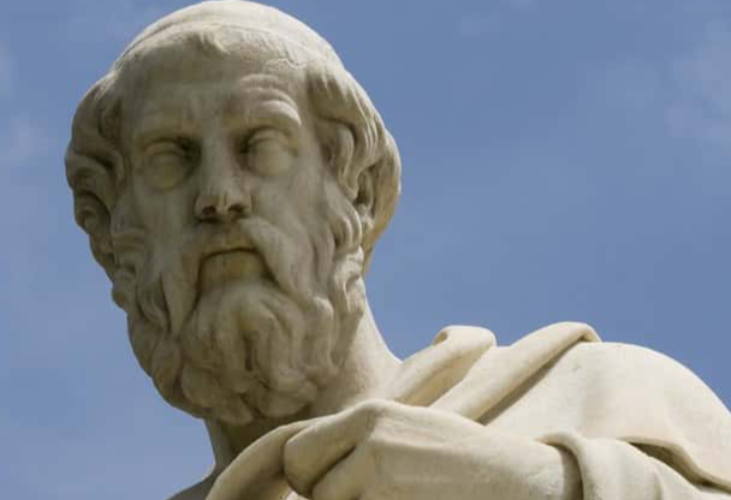 Flickr
Flickr
8. Just Call Him a World Traveler
For 12 years following the passing of his beloved teacher Socrates, Plato traveled around the Mediterranean, learning as much as he could about astronomy, math, geometry, religion, and geology. Among the places Plato visited were Egypt, Italy, Sicily and Cyrene.
9. Let’s Talk About Love, Baby
The philosopher was also interested in love. No, really! He even wrote about it, and often. In his work, he discussed how lovers weren’t fully whole until they found each other, each being incomplete halves up until then. This idea eventually became known as Platonic love. He also talked about love in Symposium, which is likely the oldest known work trying to figure out the mystery of love. At the end of the day, it kind of seems like he may have been a romantic at heart.
10. A Trilogy of Writings
Plato’s writing career, which started either during that 12-year absence from Greece or soon after, can be divided into three distinct parts. In the first, he tried to spread all of the knowledge he learned from Socrates; in the second, he wrote about his own thoughts and opinions on topics such as courage, justice, and wisdom. In his last definitive section, he explored metaphysical ideas.
11. Only the Best Blood Will Do
His father, Ariston, was a direct descendant of kings from Athens and Messeina, while his mother, Perictione, also had aristocratic blood in her by way of her ancestor Solon. It’s also been said that Plato is a descendant of Poseidon–yes, that Poseidon–the god of the sea. Can't speak to the veracity of that one.
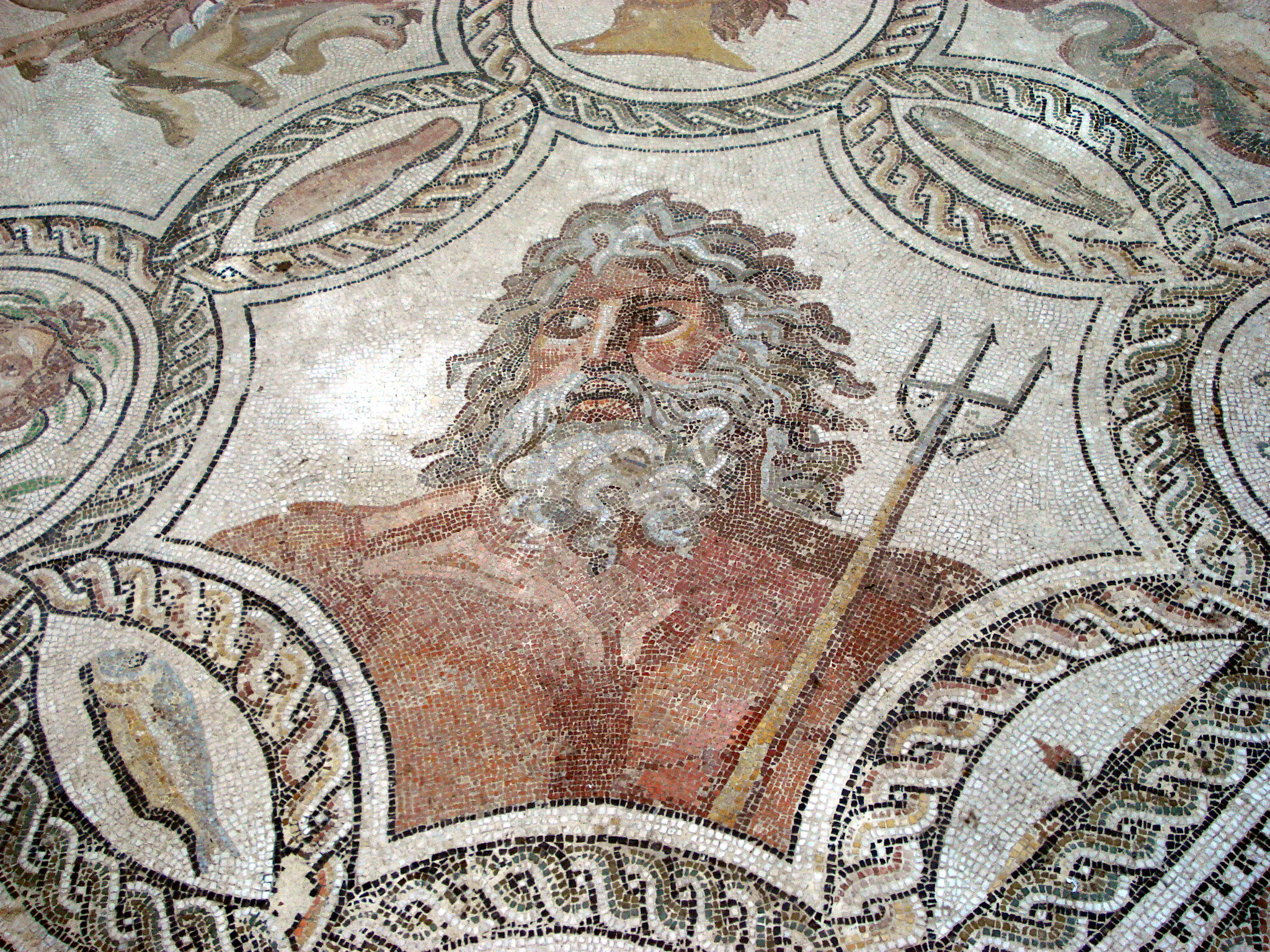 G.dallorto, CC BY-SA 2.5, Wikimedia Commons
G.dallorto, CC BY-SA 2.5, Wikimedia Commons
12. Keeping it in the Family
After his father passed, Plato’s mother married her uncle, Pyrilampes. It’s also thought that Plato had a sister and two full brothers along with one half-brother, whose father is the aforementioned uncle. And you thought your family was odd!
13. He, Too, Shall Pass
When Plato passed, he was buried somewhere at his Academy, the place he loved so much. His remains have never been found, though archaeologists have looked. There are a couple stories of how he passed. One says it was simply in his sleep, whereas another suggests he passed in bed while a girl played him the flute, and yet another claims he passed while at a feast. All pretty good options, really.
14. No Autobiographies Here
Given that Plato lived thousands of years ago, what we can't be totally sure about many aspects of his life. We know some things about his family life just simply based on what historians have been able to uncover. But his works are a whole other story. They’ve been virtually left intact for centuries upon centuries, whereas works by other philosophers who also lived in his period haven’t stood the test of time.
15. Can’t Teach Them All
In 367 BCE, Plato was invited to Sicily, then called Syracuse, to tutor the new ruler, Dionysius II. The young ruler’s uncle, Dion, had hopes that Dionysius would be a great king and believed Plato could help him. For his part, Plato was encouraged that he could mold the boy into his own philosopher king. Unfortunately, Dionysius wasn’t the best of students and showed little promise.
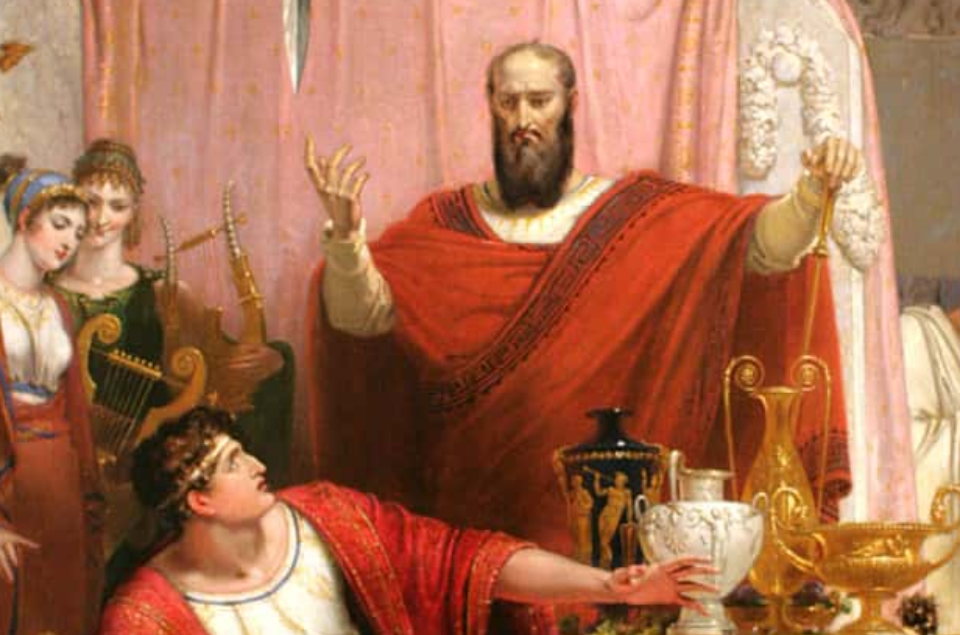 Wikipedia
Wikipedia
16. Absolute Power
Dionysus began to believe his uncle and Plato were conspiring against him, and had Plato placed under house arrest, while he exiled Dion. Eventually, Plato would leave Syracuse and go back to Greece and teaching at The Academy.
17. A School All His Own
Eventually, Plato created his own school, The Academy in Athens. Founded in 385 BCE, it’s considered to be among the first Western institutions to offer higher learning. Students who attended The Academy learned topics like philosophy, of course, but also astronomy, math, biology, and political theory. Plato continued to head The Academy until his passing, but its teachings continued until 529 CE when Justinian I, the Emperor, decided to close it due to his belief that it was a menace to Christianity.
18. Life at the Academy
Plato’s Academy was nothing even close to what we know as universities these days–except for the whole learning aspect. You see, there was no tuition. Anyone who wanted to learn there could, and didn’t have to worry about being able to afford it. Donations and presents from parents of the students were what kept the Academy running, while students themselves were encouraged to be celibate and live simply (nope, that doesn't sound like college either). Generally, students stayed for four years, though the famous Aristotle was more of a perpetual student of the Academy, staying there for 20 years!
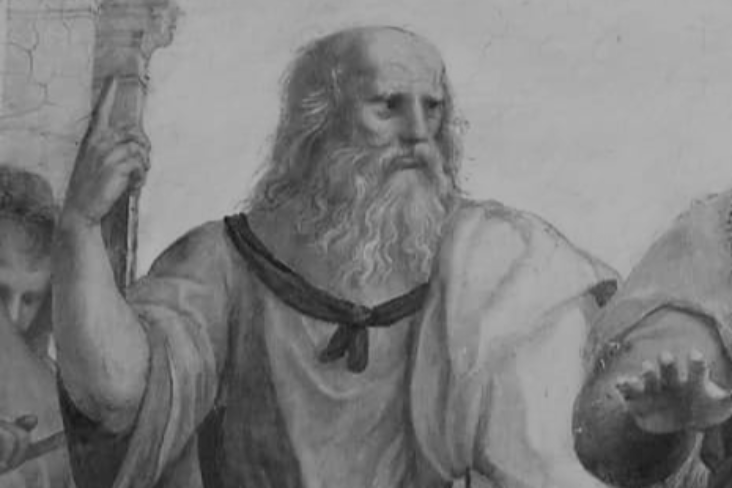 Flickr
Flickr
19. Let’s Talk About It
Most of Plato’s works take the form of dialogues. They’re exactly what they sound like, too; just conversational pieces. He wrote Laches about courage, Lysis about friendship, and Charmides, which talks about common sense, just to name a few. Altogether, his dialogues basically formed what his philosophical teachings would be when he got to his Academy.
20. Passing Is But the Next Great Adventure
Plato had some pretty interesting ideas about passing and what happens to us when we pass. He introduced the idea that we reincarnate and have immortal souls. Plato believed that souls that were good and full of knowledge could gain access to higher planes within the universe. Not only did he believe that people had souls, but he also considered the constellations to have them as well!
21. Soldier of Greece
The philosopher actually served as a soldier during the Peloponnesian combat between 409 and 404 BCE. In the conflict, the Spartans defeated the Athenians and an oligarchy was put in place. Eventually, democracy came back, and Plato considered a life in politics, and who can say how much a man with his mind could have shaped the Athenian government? Had he stuck with this plan, the history of Greece, and the Western World as a whole, might have been extremely different. So what changed his mind? Well, Socrates was executed in 399 BCE over political disputes, so Plato turned his focus to philosophy instead.
22. The Wrestler Emerges
Considering he was a soldier, it may not be surprising to discover that Plato was a wrestler! As far as we know, it was just in his youth, but we wonder if he could have had the chops to make it as a pro in our day.
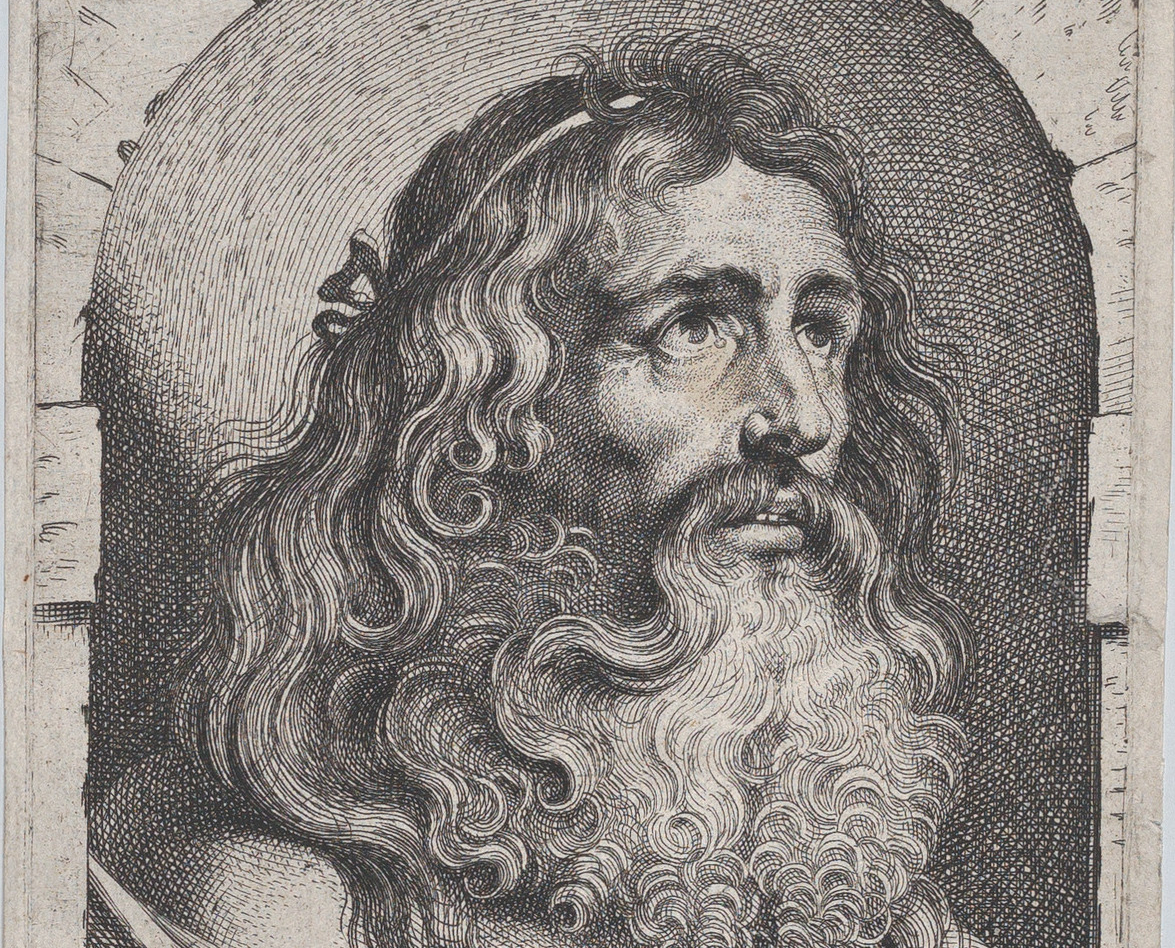 Metropolitan Museum of Art, CC0, Wikimedia Commons
Metropolitan Museum of Art, CC0, Wikimedia Commons
23. Is That Even Your Real Name?
There’s some suggestion that his real name wasn’t even Plato, but Aristocles. Some historians argue that Plato was the first-born son, and in that time first-born Greek sons were generally named after their grandfathers–in this case, Aristocles. Some sources say that he gained the nickname "Plato" from his wrestling coach, in reference to his imposing figure, as the word platon means "broad". That's right, Plato was essentially the Hulk Hogan of his time.
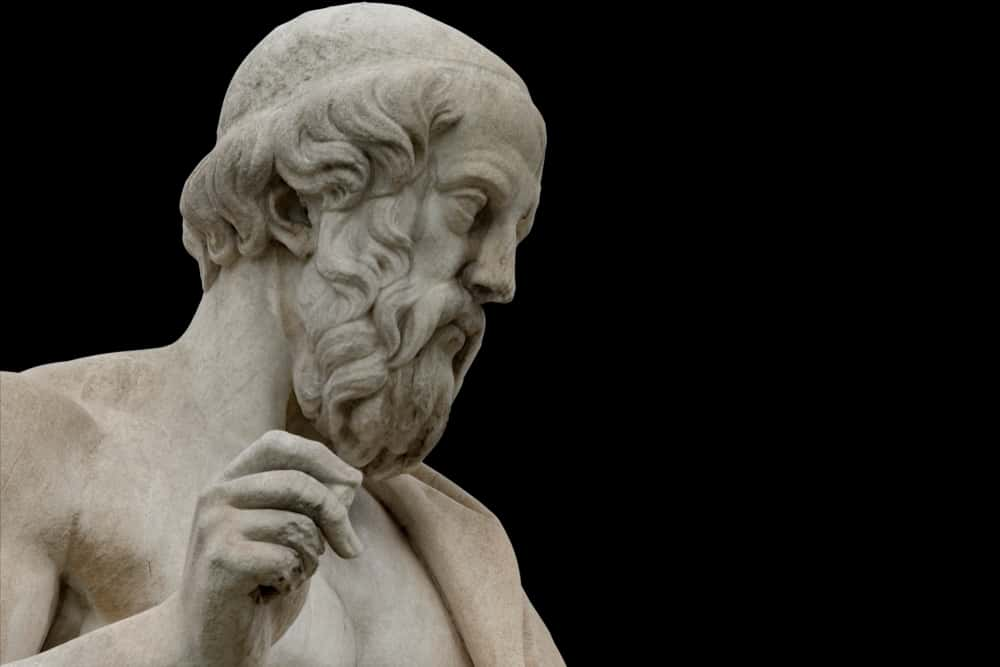 Shutterstock
Shutterstock
24. The Family We Choose
One of Plato’s own family, an uncle named Critias, was a leader of the Thirty Tyrants, a group of merciless rulers from Athens. When the Spartans were victorious over Athens, the Thirty Tyrants were put in power. This government even tried to convict Athenians of offences committed during the conflict, and even Plato's mentor Socrates got pulled into things. Socrates was told to go arrest one particular man, but he refused. In Plato’s work Apology, he argues that Socrates only had his own life spared because the Thirty Tyrants were overthrown in the nick of time.
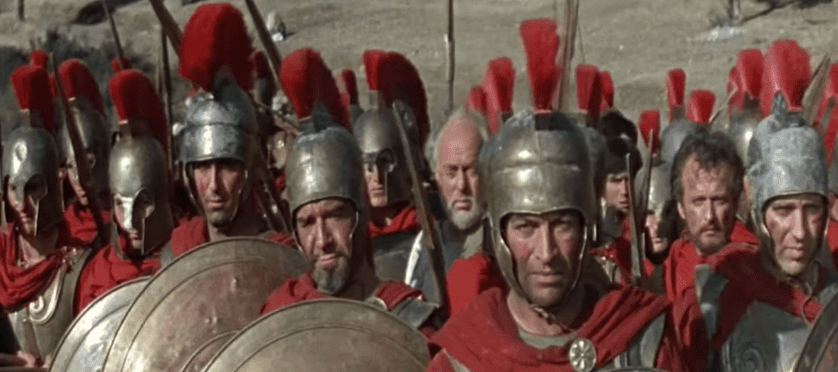 The 300 Spartans, 20th Century Fox
The 300 Spartans, 20th Century Fox



